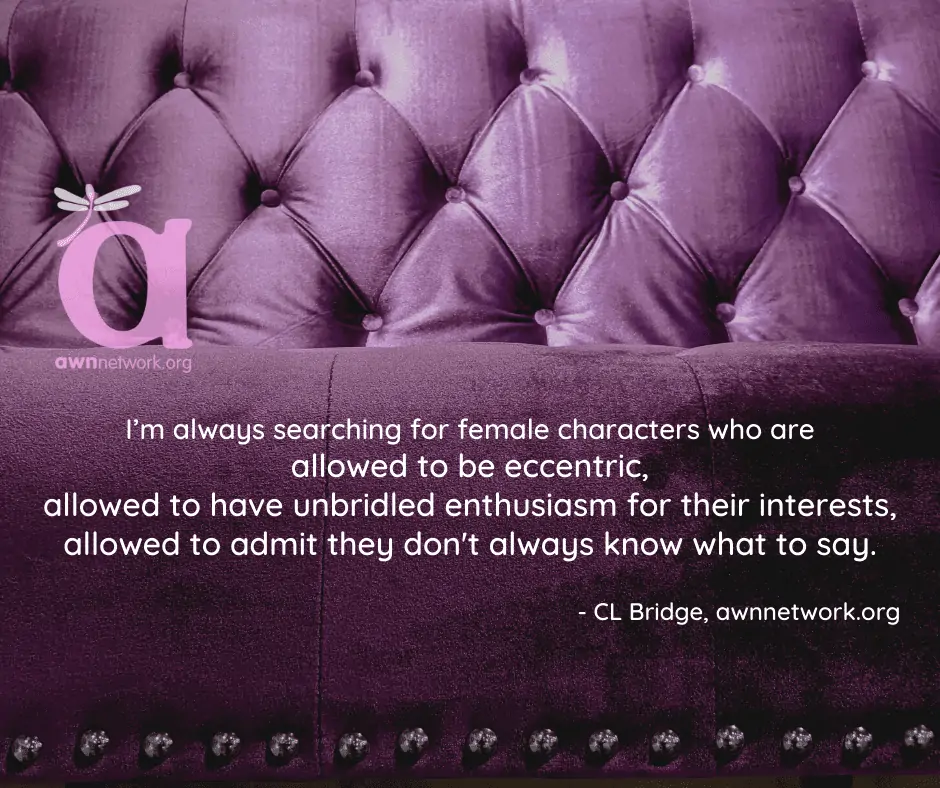
Oh, Brilliant!: the 13th Doctor and Autism
(Contains spoilers for Series 11 and 12 of Doctor Who)
“Maybe I’m nervous. Or just socially awkward. I’m still figuring myself out.” If you’re autistic or have social anxiety, you can probably relate to these words in my Instagram bio. If you’re a fan of Doctor Who, you might recognize them as a quote from the 13th Doctor, whom I headcanon as autistic.
Like most autistic people, Thirteen gets very excited about things that interest her, however small those things may seem to NTs. She loves a laminator. She loves biscuits. She can be so enthusiastic about someone’s scientific projects that she doesn’t realize they have bad intentions until it’s too late. Then there’s the adorable “purple sofa” scene. When I finally got my very own apartment (a milestone that seemed out of reach for many years), my mind kept replaying the Doctor’s happy ramblings about how she’d love to have her own flat and a purple sofa to sit on. She’s trying to make small talk, though her companions think she is being a bit weird.
This scene isn’t the only time Thirteen admits she is socially awkward. I love that. I’m always searching for female characters who are allowed to be eccentric, allowed to have unbridled enthusiasm for their interests, allowed to admit they don’t always know what to say. Thirteen’s eccentricity and social awkwardness are never portrayed as something in need of “fixing”, nor should they be.
Many autistic people will appreciate the fact that Thirteen doesn’t particularly care about gender roles. Regenerating into a female body after centuries of male regenerations doesn’t seem to be a big deal to her, and she often forgets about it completely unless she is experiencing sexism.
Thirteen feels deep empathy, although she may sometimes struggle to show it. When her companion Graham confesses to her that he is afraid his cancer will return, Thirteen isn’t sure what to say, and says so. Some fans considered Thirteen cold or uncaring in this scene, but I don’t think she meant to be. Thirteen cares, but knows she isn’t great at putting feelings into
words. She is afraid she’ll say the wrong thing… just like many autistic people who have been accused of lacking empathy when actually we weren’t sure how to express it, couldn’t form the right words quickly enough, or felt Too Much. In my imagination, the Doctor spends quite a while after this scene mulling over what she should have said or done to make her friend feel better.
Thirteen’s autistic communication style is evident in her speech about climate change. She knows her companions want her to reassure them Earth will be okay, but she can’t, because humans are letting the planet burn. In this scene, she reminds me of the real-life autistic climate activist Greta Thunberg, who refuses to soften her message about saving the planet.
The Doctor’s past selves have been hurt and watched their companions get hurt. Thirteen remembers this, and often hides her distress behind a sunny exterior until she can’t hide it anymore. Many autistic people have done something similar, masking our difficulties because we or others were hurt in the past. This may make us seem “fine” to others for a while, but it isn’t sustainable. Eventually the mask will fall off, as Thirteen’s begins to when she learns that Gallifrey has been destroyed. (Someone please give her a hug. She needs one.)
Sadly, many autistic children are subjected to questionable therapies or treated like puzzles to solve. I noticed parallels to this in the story of the Timeless Child, whose adoptive parent experimented on them for years in an attempt to understand regeneration. Discovering her forgotten past is upsetting to Thirteen because it changes what she thought she knew about herself. In a different yet similar way, autistic adults may struggle to emotionally process their childhoods—especially if trusted adults tried well-intentioned but harmful treatments on them.
The 13th Doctor has several autistic traits and experiences—some sweet or silly, some sad or scary. Autistic readers, do you recognize parts of yourself in Thirteen or another incarnation of the Doctor?
